In the final quarter of 2013, we launched the Assisted Registry Check (ARC) for our members. This enhancement to the auditing activities of the RIPE NCC was initiated in response to feedback from members who indicated that our previous auditing activities were time-consuming and could be more efficient.
The primary goals of the Assisted Registry Check are:
- Ensuring accurate data in the RIPE Registry
- Efficiently supporting the member in their regular operations
- Maintaining regular contact with members in the post IPv4 exhaustion era to ensure accuracy of contact details and to better understand their needs
In total, 50 members were involved in the initial group of reviews. This article looks at the progress we made during these initial reviews and where we plan to go from here.
Keeping in Touch
We were able to make contact with all 50 members involved in the first group of Assisted Registry Checks. Contacting members directly to schedule a conference call has proven to be a very successful approach. In total, 94% of the reviews were completed by telephone and Local Internet Registries (LIRs) expressed satisfaction with the efficiency and effectiveness of the new procedure.
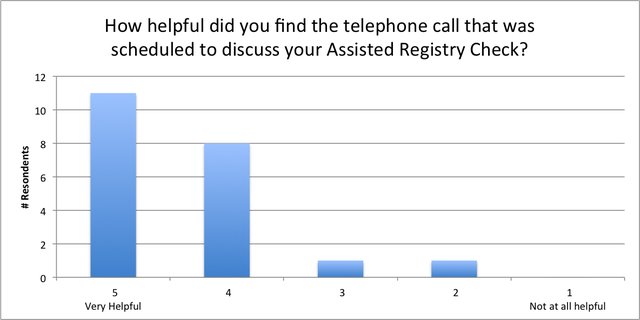
We helped 52% of the LIRs involved to update their contact information – this ranged from removing ex-colleagues from the list of registered contacts to updating telephone and fax numbers. An area of particular attention was the recently implemented "abuse-c" attribute, where we helped LIRs to create a role object containing the "abuse-mailbox:" attribute and then associate it with their existing organisation object.
Resource Registration
The RIPE community recently reached consensus on and accepted the policy proposal 2013-03 , " Post Depletion Adjustment of Procedures to Match Policy Objectives, and Clean-up of Obsolete Policy Text ". The implementation of this policy will have significant impact on the evaluation of requests for IP resources. However, it does not change the requirement to register Internet number resources in the RIPE Database. In fact, the RIPE NCC Activity Plan and Budget 2014 notes that “maintaining a strong registry” will remain a strategic focus point for the RIPE NCC in the coming years.
It is clear that accurate registration of Internet resources remains a key focus for both the RIPE community and the RIPE NCC membership. This is reflected in the 56% of members we helped with the registration of their own resources (allocated IPv4 and IPv6) and a further 26% that we helped with the registration of independent number resources (ASNs and PI assignments).
Routing Inconsistencies
Proactively identifying routing and reverse DNS inconsistencies is one of the enhancements to the RIPE NCC's auditing activity. Using tools such as RIPEstat , we are able to help LIRs better understand the information in the RIPE Routing Registry. We can help the member to compare these records with their BGP announcements and/or nameserver configuration and, where necessary, support them with any adjustments. Routing and reverse DNS inconsistencies were identified and discussed with 30 of the 50 members involved in the Assisted Registry Checks. The participants specifically expressed their satisfaction with the dedicated widgets that have been developed in RIPEstat to support this:
https://stat.ripe.net/widget/as-routing-consistency#w.resource=AS3333
https://stat.ripe.net/widget/reverse-dns-consistency#w.resource=AS3333
How it was Achieved
The Assisted Registry Check aims to be flexible and to work with members' existing schedules. This involves the RIPE NCC scheduling a conference call, identifying any registration inconsistencies, ensuring access to the required tools and services, and resolving any outstanding issues for the member.
We aim to provide a valuable and efficient service to our members and ensure an accurate and up-to-date registry for the wider RIPE community. A key driver of improved efficiency is the conference call that we schedule at the start of a review. This allows us to clearly explain the scope of the review while also giving the LIR the chance to receive dedicated support from an IP Resource Analyst. The average call duration was 20 minutes.
The introduction of the telephone call has not only improved the turnaround time of auditing activities but also increased the quality of the interaction between members and the RIPE NCC. The calls identified several topics of interest that are clearly important to the members (as you can see in the figures below). We plan to use this information to further enhance the service.
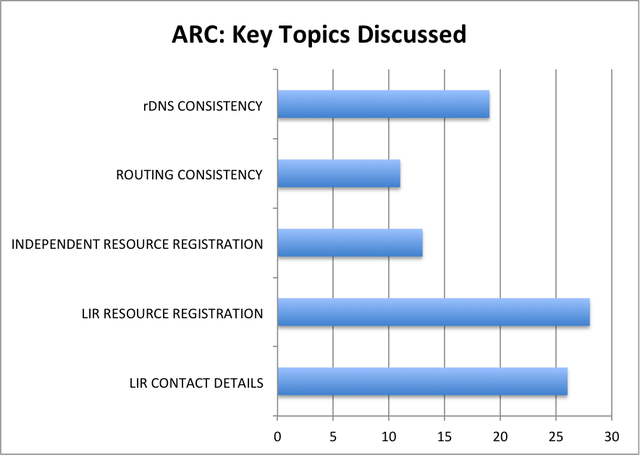
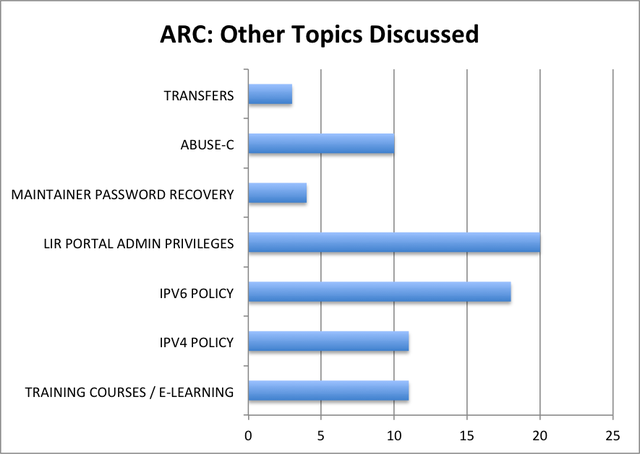
Feedback on the Assisted Registry Check
Each participant in the Assisted Registry Check was sent a short feedback survey after completion of the review. Overall, the feedback we received from those involved in the initial batch of reviews has been very positive.
21 of the 50 participants also filled out the feedback survey. The results indicated that members received real value from participating in the review and it was worth the time and effort that they invested in the process.
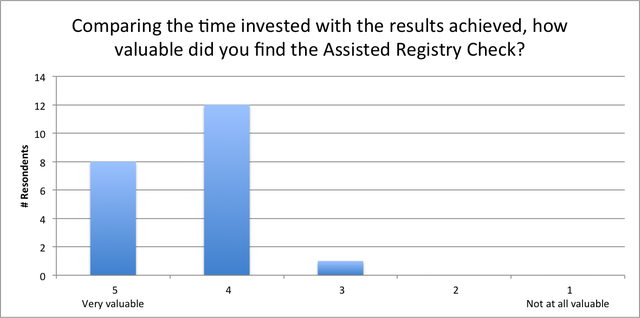
Language limitations prevented us from completing the telephone call for all 50 of the ARC reviews, but we managed to speak directly with a contact in 94% of the cases, and the majority of respondents told us that they found this to be helpful.
We will continue to gather and analyse this feedback in order to facilitate the continued development of our auditing and review activities. Quarterly statistics will be published on the ARC web pages .
If you have comments or suggestions about the Assisted Registry Check, please leave a comment below or get in touch with us directly.

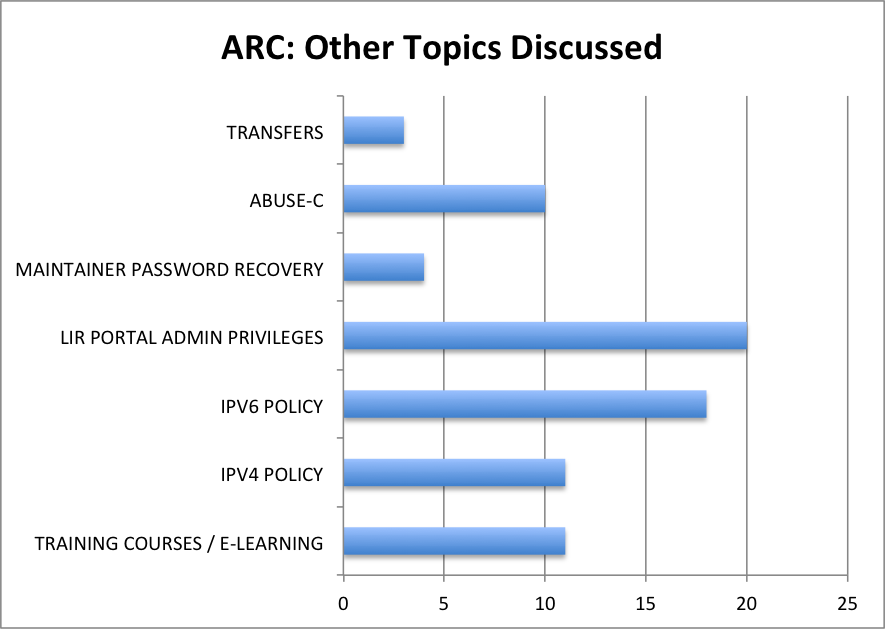


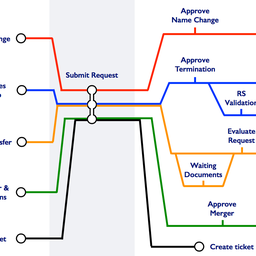
Comments 0
The comments section is closed for articles published more than a year ago. If you'd like to inform us of any issues, please contact us.